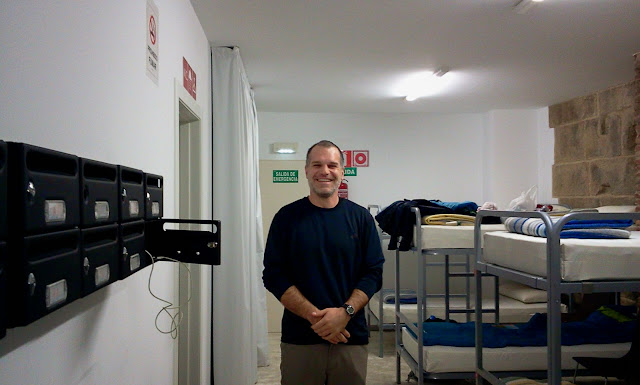. . . a few weeks ago my brother-in-law suggested getting a train to Bayonne, bus to St Jean Pied de Port, get on the camino . . . it's known . . . somewhere to go, places to sleep . . . yesterday a message from a friend and a different take on the same topic . . . are you finding the camino too predictable for your open journey . . . well, the camino is well known . . . plenty of books, maps, websites . . . even a film . . .and well marked with posts and the ubiquitous yellow arrows . . . here in Granon a post points to Santiago and helpfully tells me it's only 555 km . . . the countdown markers are too much in the known . . . somebody wrote on one saying so . . .after St Domingo the plates had been ripped off . . .
. . . I have no guide book or overall map . . . pick up the tourist leaflet in each state, update open albergues with the tourist inf folks . . . each day new options . . . stay here, push on, take a rest day . . . my Helpx host has a teacher for a month or two, so I can slow things down a bit . . . on the other hand, Ernesto tells me snow is forecast Friday night, better get over the high point and forest before then . . . more options, if I can get over, fine . . . if not I can wait or take a bus . . . anyway I am setting off early this morning . . .
exploring this question of the knowns: known unknowns - someone knows it, you don't, but you can find out if you want; known knowns - everyone knows it; known unknowns - theories yet to be proven, experienced; unknown unknowns - the things you don't even know you don't know . . . which is where it gets really interesting . . . movement towards the unknown unknown transforms it to a known unknown, then a known . . . and on we go . . . possibly . . .
. . . as for the camino, Alex had a Michelin guide, which looked comprehensive . . . John a book by John Brierley, combining maps, handy tips, places to see and philosophy . . . one to read later perhaps . . . anyway, the key information is: the map is not the territory and thinking it is can be dangerous . . .







